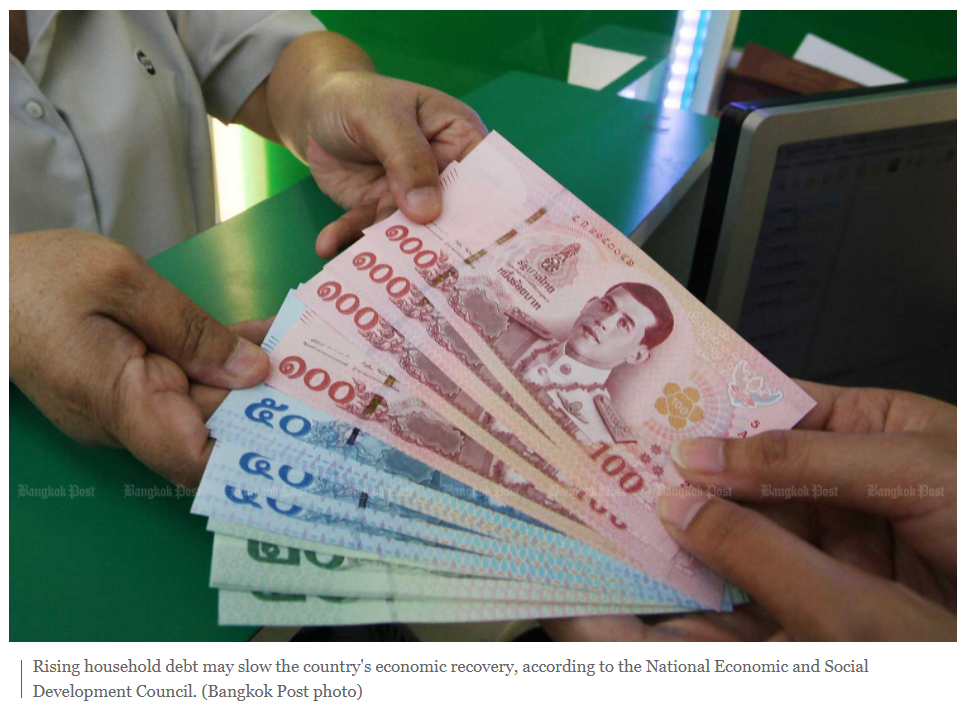Thailand: Debt avalanche may curb consumption
Rising household debt may slow the country’s economic recovery, as people use their income to repay debt rather than spend on consumption, warns the government’s planning unit.
Jinanggoon Rojananan, deputy secretary-general to the National Economic and Social Development Council (NESDC), said the latest wave of Covid-19 infections have triggered not only a surge in household debt, but also a drop in income.
Ms Jinanggoon said the surge of infections also affected people’s ability to repay debts, leading to an increase in the amount they owe.
The Bank of Thailand reported last week Thailand’s household debt ratio to GDP rose to 90.5% in the first quarter, the highest since 2003, as Covid-19 outbreaks continue to batter the economy.
At the end of March, household debt increased to 14.1 trillion baht from 14.0 trillion at the end of December, equal to 89.4% of GDP, already among Asia’s highest.
The central bank began collecting household debt data in 2003.
The NESDC predicted the household debt-to-GDP ratio would remain high this year because the economy has not recovered to the level it was at prior to the pandemic. The labour market could face more hardships, pressuring household income, said the think tank.
Low-income households will be particularly cautious with their spending this year, especially for durable goods, said the NESDC. As a result, demand for homes and automobiles has slowed considerably.
Meanwhile, credit card and personal consumption loans may see an increase in demand due to liquidity issues, as could low-interest loans for residents through government-owned financial institutions such as the Government Savings Bank, said the think tank.
In May, the NESDC slashed its economic growth forecast for a second time to 1.5-2.5% from a forecast of 2.5-3.5% made on Feb 15 and an outlook of 3.5-4.5% from November 2020.
Ms Jinanggoon suggested in the short term the government speed up the implementation of debt restructuring programmes for both new debtors who are affected by the outbreak and older debtors who have undergone debt restructuring, but still risk developing non-performing loans due to the latest infections.
“The government needs to emphasise assisting low-income earners because their financial plight is much more serious than other groups,” she said. “Aid measures are desperately needed for small and medium-sized enterprises to enable them to retain employment.”
Ms Jinanggoon said special assistance must also be provided to low-income households because the loss of income will have a serious impact on their living conditions, as many of them already shoulder a debt burden and are desperate for financial support.
She proposed the government help supervise creditors to devise responsible lending schemes to prevent excessive borrowing by debtors.
Source: https://www.bangkokpost.com/business/2143399/debt-avalanche-may-curb-consumption


 Thailand
Thailand




